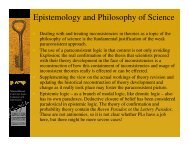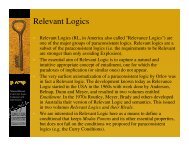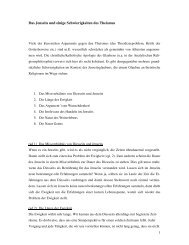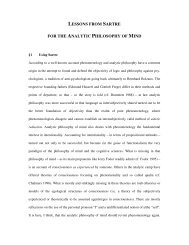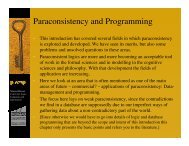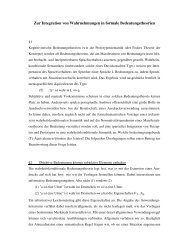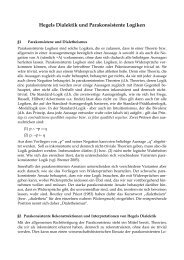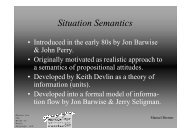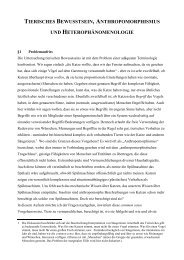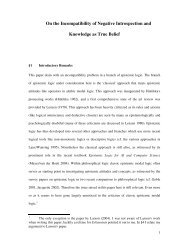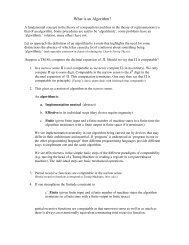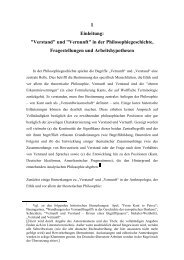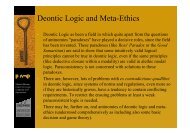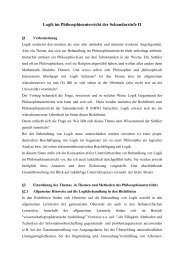Inconsistent Ontology - Mbph.de
Inconsistent Ontology - Mbph.de
Inconsistent Ontology - Mbph.de
You also want an ePaper? Increase the reach of your titles
YUMPU automatically turns print PDFs into web optimized ePapers that Google loves.
p ∧¬<br />
∧¬ ∧¬p ∧¬<br />
∧¬<br />
Manuel Bremer<br />
Centre for Logic,<br />
Language and<br />
Information<br />
Meinong's <strong>Ontology</strong><br />
• The most promising place to turn to for an ontology of inconsistent<br />
objects is Alexius Meinong's Gegenstandstheorie. The logic of<br />
Meinong's ontology has to be, it seems, some kind of paraconsistent<br />
logic; and strong paraconsistent semantics may need something like<br />
Meinong's ontology. Thus the focus in this chapter is on Meinong's<br />
ontology and its formalisation by analytic philosophers.<br />
• Meinong's theory has been ridiculed by analytic philosophers from<br />
Russell to Ryle. The i<strong>de</strong>a of there being an object for any name or<br />
<strong>de</strong>scription (including the gol<strong>de</strong>n mountain or the round square) seems<br />
too strange.<br />
• There has been a growing interest in Meinong's theory, however, with<br />
the advent of Free Logics (logics that allow for individual expressions<br />
that do not refer) and the intricacies of the semantic and logical<br />
analysis of context of belief. The logic of fictional objects also can be<br />
hardly referential. Semantics of modal logics talk about different<br />
mo<strong>de</strong>s of being (being actual, i.e. part of the actual world, vs. being<br />
merely possible) – so there may be a relationship to Meinong's i<strong>de</strong>as.



